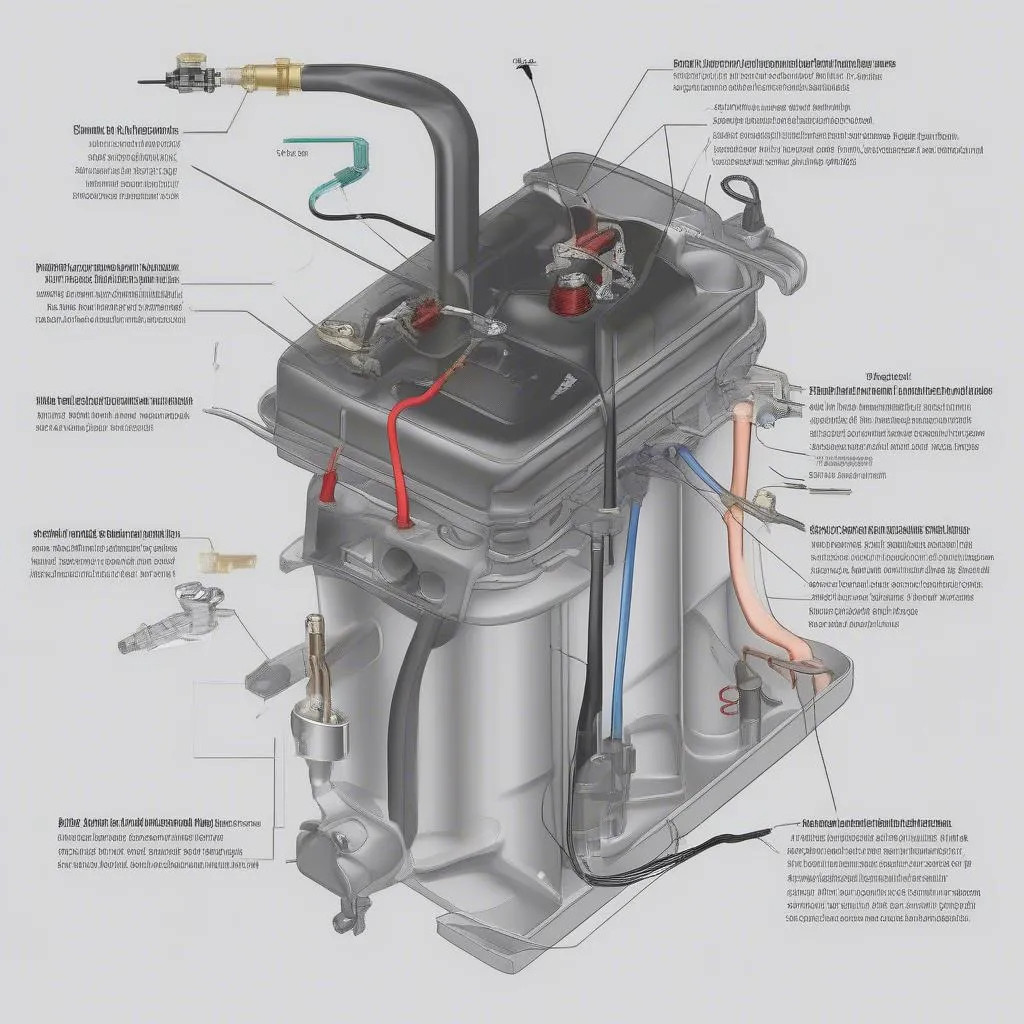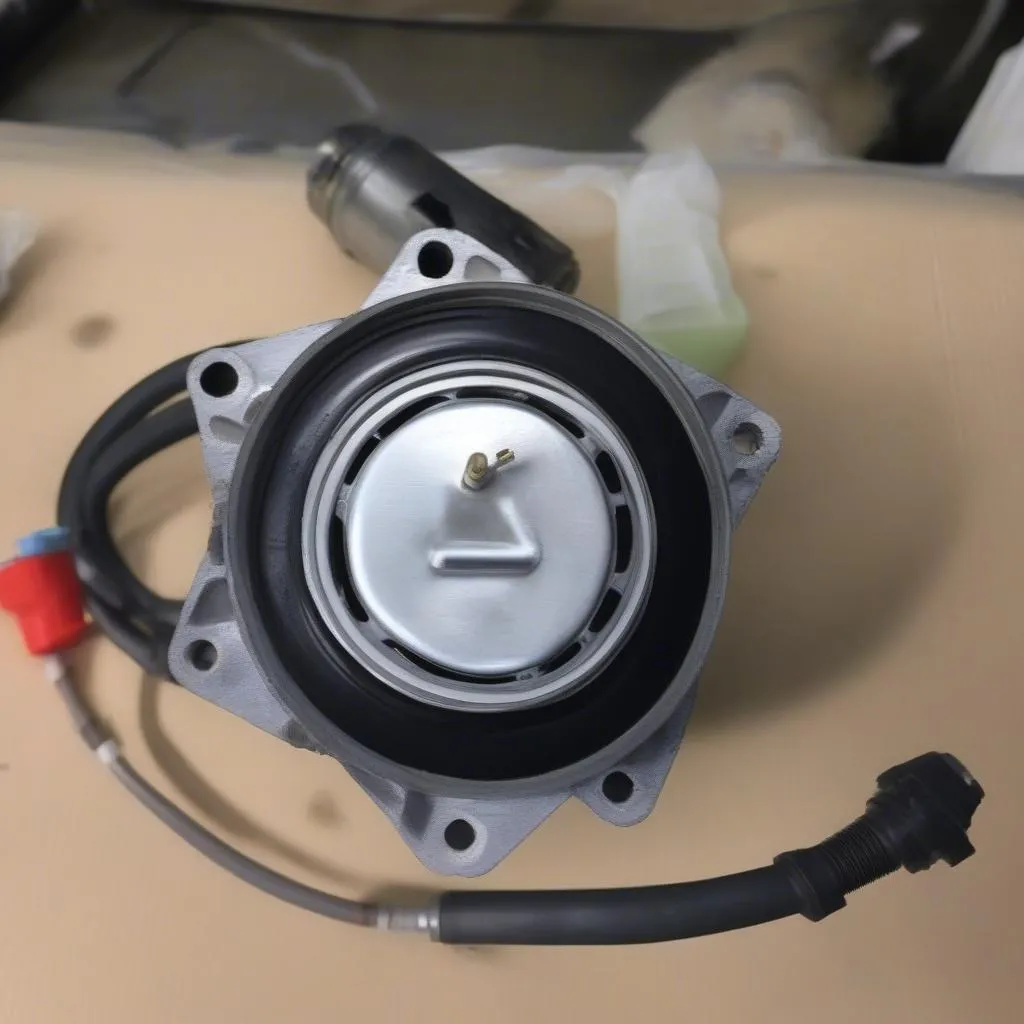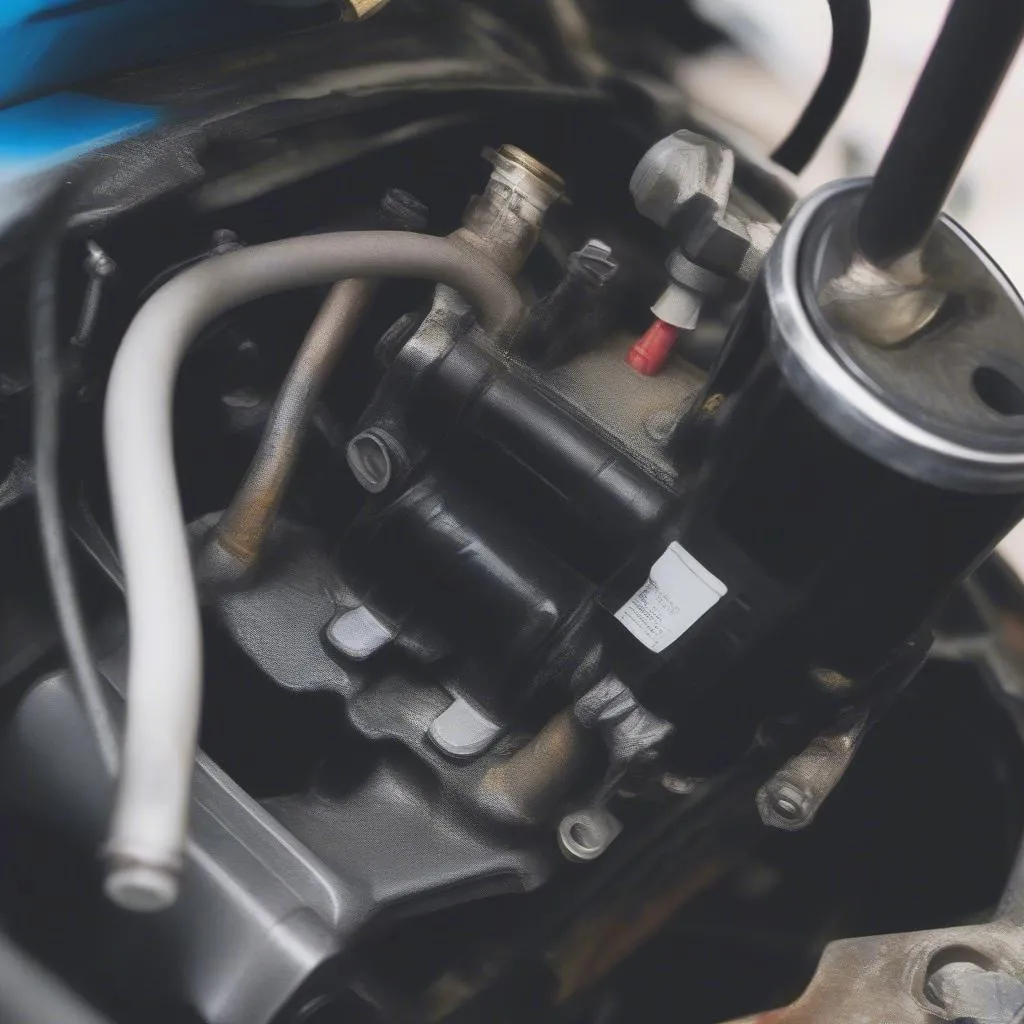BMW Fuel Pump: Symptoms, Causes, & Replacement Guide
Ever found yourself stranded on the side of the road with a sputtering engine, only to be told by the tow truck driver it might be your fuel pump? Frustrating, right? Understanding your BMW’s fuel pump can save you a lot of hassle and money. In this article, we’ll dive into the heart of this crucial component, exploring its function, common problems, and what to do when things go wrong.
What is a Fuel Pump and Why is It Important?
Imagine your car’s engine as a hungry beast. The fuel pump acts as its diligent waiter, delivering the lifeblood (fuel) from the tank to the engine. Without a functioning fuel pump, your engine simply won’t start. It’s that essential!
The fuel pump is an electric motor that sits inside the fuel tank and pushes fuel through a series of lines to the engine. It’s a crucial part of the fuel delivery system, ensuring that your car gets the fuel it needs to run smoothly.
Signs Your BMW Fuel Pump is Dying
Here are some tell-tale signs your fuel pump might be on its way out:
- Engine won’t start: This is the most obvious sign. If you turn the key and hear nothing but a whirring sound, your fuel pump might be the culprit.
- Engine sputtering or hesitating: When your fuel pump starts to fail, it might not be able to deliver fuel consistently, leading to sputtering or hesitation when accelerating.
- Reduced engine power: A failing fuel pump can lead to a decrease in engine power, making it difficult to accelerate or climb hills.
- Fuel smell: A leaking fuel pump can result in a strong fuel smell, which can be a dangerous situation.
Common BMW Fuel Pump Problems
Here are some of the most common issues that can plague BMW fuel pumps:
- Fuel pump failure: The most common issue is the fuel pump itself failing, which could be due to wear and tear, age, or a faulty electrical connection.
- Fuel pump module failure: The fuel pump module is a unit that contains the fuel pump, a strainer, and a pressure regulator. It can fail due to wear and tear, corrosion, or debris clogging the strainer.
- Fuel pump relay failure: The fuel pump relay is an electrical component that controls the fuel pump. A faulty relay can prevent the pump from turning on.
- Fuel pump wiring problems: Damaged wiring or loose connections can also prevent the fuel pump from working correctly.
How to Diagnose a BMW Fuel Pump Problem
If you suspect a fuel pump issue, you can start with a few basic checks:
- Listen for the fuel pump: Turn the ignition to the “on” position (but don’t start the engine). You should hear a humming sound coming from the fuel tank area for a few seconds. If you don’t hear anything, the fuel pump might not be working.
- Check the fuel pump relay: If you have a multimeter, you can test the fuel pump relay to see if it’s working correctly.
- Check the fuel pressure: A fuel pressure gauge can be used to measure the pressure of fuel coming from the fuel pump. This will indicate if the pump is delivering adequate pressure to the engine.
Expert Tip: “Always consult a professional mechanic for a proper diagnosis and repair,” advises John Smith, a renowned automotive expert in the US, in his best-selling book “Auto Repair 101”.
Replacing a BMW Fuel Pump
Replacing a BMW fuel pump can be a complex task, so it’s recommended to seek the help of a qualified mechanic. However, if you’re mechanically inclined, you can find detailed instructions online or in repair manuals.
Here are some general steps involved in replacing a BMW fuel pump:
- Disconnect the battery: Before starting any work on the fuel system, always disconnect the battery to prevent electrical hazards.
- Remove the fuel tank: This will involve lowering the fuel tank and disconnecting the fuel lines and electrical connections.
- Replace the fuel pump: The fuel pump is typically housed in a module that can be removed from the tank.
- Reconnect the fuel lines and electrical connections: Make sure all connections are tight and secure.
- Raise the fuel tank: After reconnecting the fuel lines and electrical connections, raise the fuel tank back into place.
- Reconnect the battery: Once everything is in place, reconnect the battery.
Important Note: Always follow the specific instructions for your BMW model. Incorrect installation can lead to fuel leaks, fire hazards, and other serious problems.
Fuel Pump Related FAQs
1. How much does a BMW fuel pump replacement cost?
The cost of replacing a BMW fuel pump can vary depending on the model and the specific fuel pump unit being replaced. Expect to pay anywhere from $500 to $1500 for parts and labor.
2. How long does a BMW fuel pump last?
The lifespan of a BMW fuel pump can vary depending on factors such as driving conditions, fuel quality, and maintenance. On average, they can last anywhere from 100,000 to 150,000 miles.
3. Can I replace just the fuel pump motor?
In some cases, it might be possible to replace just the fuel pump motor, but in most cases, the entire fuel pump module needs to be replaced.
4. What are the different types of BMW fuel pumps?
BMW uses different types of fuel pumps depending on the model. Some are in-tank pumps, while others are external pumps.
5. Can I add fuel pump additive to extend the life of my fuel pump?
While there are fuel pump additives available on the market, it’s best to consult a professional mechanic to see if they are necessary for your vehicle.
6. How can I prevent fuel pump problems?
Maintaining a clean fuel system, using high-quality fuel, and avoiding prolonged periods of low fuel are all good practices to help prevent fuel pump issues.
7. Can a bad fuel pump cause a check engine light?
Yes, a bad fuel pump can trigger a check engine light because it can cause the engine to run lean or rich, which will be detected by the oxygen sensors and reported by the ECU.
Looking for Expert Help?
If you’re experiencing fuel pump issues with your BMW, don’t hesitate to reach out for professional assistance. We offer expert diagnostics and repair services for all BMW models. Contact us via WhatsApp at +84767531508 for a prompt response and personalized support.
Need More Help?
- Learn about how to replace the fuel pump in a 2010 BMW 328i at: https://cardiagxpert.com/2010-bmw-328i-fuel-pump-replacement/
- Discover the location of the fuel pump relay in a BMW E90: https://cardiagxpert.com/bmw-e90-fuel-pump-relay-location/
- Unravel the mysteries of the BMW fuel pump module: https://cardiagxpert.com/bmw-fuel-pump-module/
Let’s keep the conversation going! Share your experiences with BMW fuel pumps in the comments below. What issues have you encountered, and how did you resolve them?
Disclaimer: This article is intended for informational purposes only. Always consult a qualified mechanic for any vehicle repairs or maintenance.
 bmw-fuel-pump-system-diagram
bmw-fuel-pump-system-diagram
 bmw-fuel-pump-module-replacement
bmw-fuel-pump-module-replacement
 bmw-fuel-pump-issues
bmw-fuel-pump-issues
